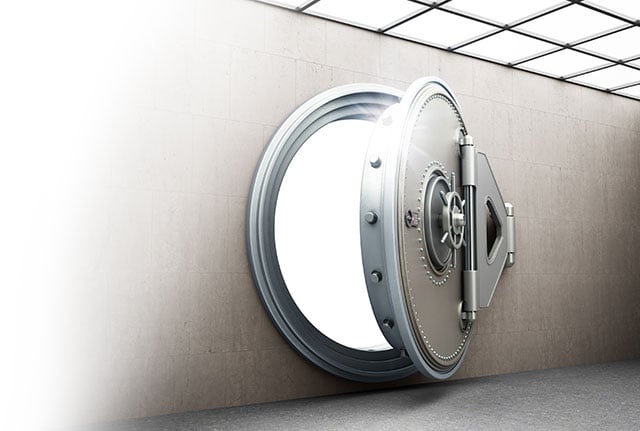Investing in Rare Earth Metals
Invest in Rare Earth Minerals Companies
Rare earth metals may not be household names, but they offer investors a unique opportunity because they play a crucial role in modern technology. From smartphones to electric vehicles, rare earth metals are critical parts of our most beloved gadgets.
(Please keep in mind, we offer some references herein to outside studies and articles that may offer additional information and insight into this industry, but this is not an endorsement of the quality of research or study conducted by the authors. This is why we provide multiple sources, for different perspectives.)
What are the Different Types of Rare Earth Metals?
Rare earth metals consist of seventeen chemical elements with unique properties. Each metal serves a specific purpose in various industries. Additionally, elements such as silicon, cobalt, lithium, and manganese, which are not rare earth metals, are critical minerals that are also essential for the energy transition and an important part of understanding the opportunities within this group. Here is a closer look at some of the most important elements:
1. Neodymium
Neodymium is known as the “superstar” of the rare earth metals. Its exceptional magnetism makes it vital for producing powerful magnets used in electric vehicles, wind turbines, and speakers.
Neodymium magnets are incredibly strong and have a wide range of applications. They are used in computer hard drives, headphones, and even in medical devices such as MRI machines. The use of neodymium magnets in electric vehicles is particularly important as it helps improve the efficiency and performance of the motors, leading to longer battery life and increased range.
Furthermore, neodymium is also used in the production of lasers, where its unique properties allow for the creation of highly focused and intense beams of light. This makes it an essential component in various scientific and industrial applications, including cutting-edge research and manufacturing processes.
2. Dysprosium
Dysprosium plays a critical role in ensuring the efficiency of many green technologies. It helps enhance the performance of strong magnets by reducing heat and improving stability.
In addition to its use in magnets, dysprosium is also utilized in the production of lighting, particularly in energy-efficient bulbs. Its unique properties allow for the creation of brighter and longer-lasting lights, making it an essential component in the transition towards more sustainable and eco-friendly lighting solutions.
Moreover, dysprosium has applications in nuclear reactors, where its high neutron absorption cross-section makes it useful for controlling and regulating the nuclear fission process. This contributes to the safe and efficient operation of nuclear power plants and to the production of clean, reliable energy.
3. Lanthanum
Lanthanum is widely used in hybrid car batteries and camera lenses due to its high refractive index. Additionally, it has applications in petroleum refining and advanced ceramics.
In hybrid car batteries, lanthanum is used to improve the performance and efficiency of the battery pack. Its high energy storage capacity allows for longer electric-only driving ranges, reducing the reliance on fossil fuels, thereby decreasing carbon emissions.
Furthermore, lanthanum is an essential component in the production of camera lenses. Its high refractive index allows for the creation of lenses that can capture sharp and detailed images, making it a crucial element in the field of photography and cinematography.
Additionally, lanthanum is used in petroleum refining processes to remove impurities and improve the quality of the final products. Its ability to selectively bind with certain elements and compounds makes it an effective catalyst in various chemical reactions, ensuring the production of cleaner and more efficient fuels.
Moreover, lanthanum has applications in advanced ceramics, where its unique properties allow for the creation of materials with exceptional strength, heat resistance, and electrical conductivity. These ceramics find use in a wide range of industries, including aerospace, electronics, and defense.
Here is an article which gives a further list, description, and breakdown of all of the elements on the list, as well as some of their uses (https://www.thoughtco.com/rare-earth-elements-list-606660).
What to Consider Before Investing in Rare Earth Metals
While investing in rare earth metals may offer long-term investment potential, it is essential to consider a few key factors before diving in:
1. Market Demand
Make sure to study the current and projected demand for the specific rare earth metal you are considering.
When analyzing market demand, it is important to consider various factors that can influence it. For example, the growing demand for renewable energy technologies, such as wind turbines and electric vehicles, has significantly increased the demand for rare earth metals. These metals are crucial components in the production of magnets used in these technologies.
Additionally, the demand for rare earth metals is also influenced by the electronics industry. These metals are used in the manufacturing of smartphones, computers, and other electronic devices. As technology continues to advance and new gadgets are introduced to the market, the demand for rare earth metals is expected to rise.
Here are some resources for information on demand, supply, and forecast:
- https://www.mordorintelligence.com/industry-reports/rare-earth-elements-market
- https://www.bcg.com/publications/2023/five-steps-for-solving-the-rare-earth-metals-shortage
- https://www.fmiblog.com/2024/01/11/rare-earth-metals-industry-on-remarkable-heights-projected-to-attain-a-valuation-of-us-14-6-billion-by-2033/
2. Political Factors
Staying informed about geopolitical events that might impact supply and demand is important when looking to invest in rare earth metals. The influencing factors could includetrade policies, international relations, and geopolitical events that may impact the production and distribution of these metals. Setting ‘Keyword Alerts’ in an online news source could be helpful in staying up to date on these geo-political changes.
China, for example, is the world’s dominant producer of rare earth metals and has a significant influence on the market. The nation currently accounts for approximately 80% of the global rare earth metal production. This dominance gives China significant control over the market. Political tensions between China and other countries can impact the availability of rare earth metals, as export restrictions or trade disputes can disrupt the supply chain. In response to the scarcity of some of these elements contributing to the shortage of computer chip supplies, other countries have been investigating ramping up mining these elements within their own borders, where available.
Here are some resources on supply factors:
- https://www.technologyreview.com/2024/01/05/1084791/rare-earth-materials-clean-energy/
- https://phys.org/news/2024-01-maximizing-circular-economy-strategies-rare.html
- https://www.thestockdork.com/american-firms-strive-to-boost-local-production-of-rare-earth-elements/
3. Environmental Impact
The mining and processing of rare earth elements is not without consequences, and can have significant environmental impact. The extraction process often involves the use of toxic chemicals, which can contaminate soil and water sources if not properly managed. Additionally, the disposal of waste materials from mining operations can lead to pollution and habitat destruction.
Investors who prioritize sustainability and environmental responsibility should consider investing in companies that adhere to strict environmental regulations and implement sustainable practices. These companies should, at the very least, prioritize technologies that minimize the environmental impact of rare earth metal extraction and processing, such as recycling or using cleaner extraction methods.
Here are some resources on the environmental impacts of rare earth mining:
- https://hir.harvard.edu/not-so-green-technology-the-complicated-legacy-of-rare-earth-mining/
- https://earth.org/rare-earth-mining-has-devastated-chinas-environment/
- https://e360.yale.edu/features/boom_in_mining_rare_earths_poses_mounting_toxic_risks
What are the Different Types of Rare Earth Investments
There are several ways to invest in rare earth metals, each with its own set of advantages and risks. Here are a few common options:
1. Rare Earth Mining Companies
Investing directly in rare earth mining companies may allow you to participate in the industry’s success. Research different rare earth companies and consider their track record, financial health, and growth potential.
2. Exchange-Traded Funds (ETFs)
ETFs (Exchange Traded Funds) may provide an opportunity to diversify your rare earth metal investments. There are funds that focus on this industry or have a significant allocation to it, and they can hold shares of several or many mining companies, reducing the risk associated with investing in a single stock.
3. Physical Ownership
If you prefer a more tangible investment, you can purchase physical rare earth metals. Keep in mind that storing, and possibly insuring, these metals can be a challenge, so proper precautions are necessary and this option should be thoroughly investigated prior to “jumping in.”.
Here are some references:
- https://money.usnews.com/investing/stock-market-news/articles/how-to-invest-in-rare-earth-stocks
- https://investingnews.com/top-rare-earth-stocks/
- https://www.nasdaq.com/articles/5-stocks-to-watch-as-rare-earth-exposure-rises-in-america-2021-05-26
The Benefits of Investing in Rare Earth Companies
Investing in rare earth companies offers several potential benefits:
1. Innovation and Technological Advancement
By investing in rare earth companies, you could potentially contribute to technological advancements. Many companies that use rare earth metals drive innovation and play a crucial role in shaping the future. This includes the advancement of clean energy solutions, such as electric vehicles and wind turbines. By investing in these companies, you are not only making an addition to your portfolio but may also be contributing to a greener future.
2. Rising Demand
The demand for rare earth metals is expected to increase steadily (as cited in the articles above) as technology continues to advance. Investing in this market can potentially result in significant returns if demand outpaces supply causing prices to rise.
3. Portfolio Diversification
Rare earth metals provide a unique opportunity for diversification. Including this alternative asset class in your investment portfolio may help mitigate risk and enhance returns.
Investing in rare earth metals companies offers investors a unique way to participate in a growing industry. However, as with any investment, it is important to do thorough research, understand the market dynamics, and consult with a financial advisor before making any investment decisions.
DISCLOSURE:
All information contained in this communication should not be considered investment advice nor an offer to buy or sell securities, but educational and entertainment purposes only.
Investing in private or early-stage offerings (such as Reg A, Reg S, Reg D, or Reg CF) involves a high degree of risk. Securities sold through these offerings are not publicly traded and, therefore, are illiquid. Additionally, investors will receive restricted stock that is subject to holding period requirements. Companies seeking capital through these offerings tend to be in earlier stages of development and have not yet been fully tested in the public marketplace. Investing in private or early-stage offerings requires a tolerance for high risk, low liquidity, and a long-term commitment. Investors must be able to afford to lose their entire investment. Such investment products are not FDIC insured, may lose value, and have no bank guarantee.
Current Rare Earth Metals Investment Opportunities:
Unfortunately, we don't have any active rare earth metals investment opportunities at this time.
Get alerted when a new opportunity becomes available:
Past Rare Earth Metals Investment Opportunities:

Offering Name: Nevada Canyon Gold
Raise type: Reg-A

Offering Name: Durango Gold
Raise type: Reg-CF
- No Previous Rare Earth Metals Opportunities -
Equifund Member Testimonials:










Want to unlock the potential wealth building power of private market investing?
Join the Private Market Insider below:
Learn more about how to invest in rare earth metals:
The Ugly Truth About Climate Change Investing
And why ESG mining could be the secret to unlocking a carbon neutral future…esg mining

